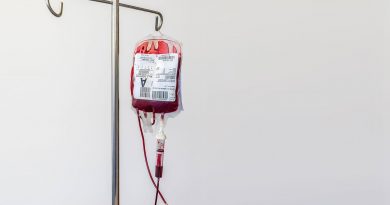7 Horrifying Things That Happen to Your Body When You Don't Sleep
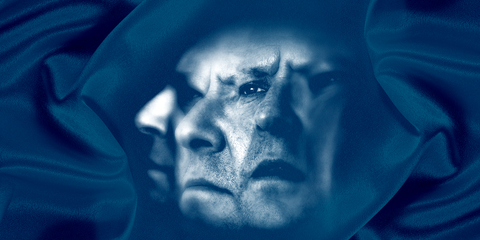
Whether it’s due to your loud upstairs neighbors or your snoring bedmate, pretty much everyone has experienced at least a few nights of tossing and turning. Unfortunately, you may have inadvertently thrown your body out of whack, as skimping on sleep can result in more than just heavy eyelids the following day.
“Sleep isn’t a luxury, it’s a necessity,” says Michelle Drerup, PsyD, director of behavioral sleep medicine at the Cleveland Clinic. “Hours of lost sleep add up to a bigger health deficit than you may realize.”
Here’s the scariest part: you don’t need to be tossing and turning every single night to experience the long-term negative health effects of sleep deprivation. A review of 16 sleep studies found that getting less than 6-8 hours of sleep per night can up your risk of early death by as much as 12 percent. (For comparison, experts recommend you get 7 to 9 hours of sleep per night.)
Read ahead for more on the major effects of sleep deprivation, from the obvious to the more extreme — and what you can do to nip the problem in the bud.
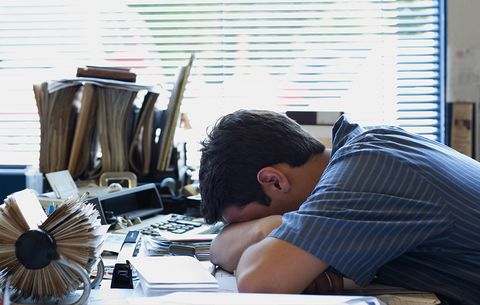
Getty Images
This one is pretty straightforward: if you’re exhausted, you’ll try to catch Zs wherever you can. That means if your body is craving rest, you might find yourself nodding off in some unexpected places.
“The brain needs sleep to consolidate memories, practice and rehearse important events, process emotions, and do a bit of ‘clean up,’ via the glymphatic system [in the central nervous system], after a busy day,” says psychiatrist Alex Dimitriu, M.D., of Menlo Park Psychiatry & Sleep Medicine. “The most obvious sign of sleep deprivation is fatigue and excessive daytime sleepiness. The latter is the tendency to fall asleep with any period of boredom or inactivity. Nodding off in a meeting, on the train, or in a classroom, is often a sign.”
One other tell? Needing a massive amount of coffee to survive. “Excessive caffeine use can often mask sleep deprivation, so it’s also worth considering how much caffeine someone needs to feel okay during the day,” Dimitriu says. If you’re a caffeine drinker, try not to exceed four cups of coffee per day, which researchers have found is a good target for overall health.
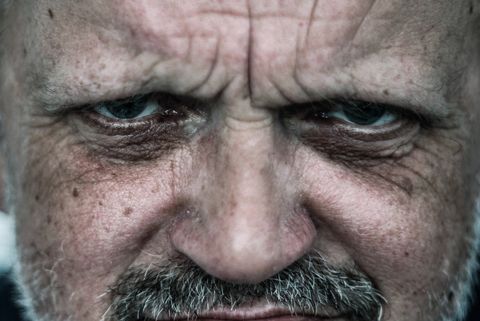
Katalin Balassa / EyeEm
Your crankiness levels skyrocket after you’ve spent all night staring at the ceiling.“Mood is the first thing to go if you are sleep deprived,” says Drerup.
Not getting enough shut eye leads to elevated levels of cortisol, also known as the “stress hormone,” in the body. By contrast, “a good night’s sleep naturally reduces cortisol levels in your body,” she says. To get your sleep schedule back on track, get up at the same time every day, nix naps, and work out earlier in the day, says Drerup.

Getty
Ever notice how the break room snacks look more and more appealing when you’re yawning the afternoon away? Well, there’s a hormonal reason for that: lack of sleep can lead to reduced levels of leptin, the hormone that makes you feel full, according to Christopher Hollingsworth, M.D., general and endovascular surgeon at NYC Surgical Associates.“When you don’t get enough sleep, leptin levels drop leaving you feeling hungrier and more likely to crave high-calorie foods,” which means you’re more likely to put on the pounds, Hollingsworth says.
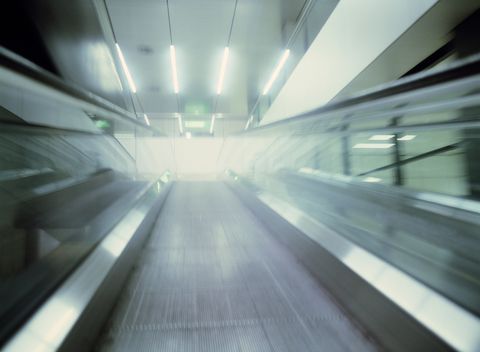
Dutchy/Getty Images
“Extreme sleep deprivation is a method of torture and interrogation, because it just breaks down the human psyche,” Dimitriu says. This has led to people imagining things that aren’t there, such as inanimate objects talking or shadows taking on lives of their own.
In addition to impairing focus and recall, hallucinations can also begin to happen around the time you would normally be going to bed or waking up. “These are known as hypnagogic and hypnopompic hallucinations, and can often take the form of true hallucinations — people, sounds, visions — not just illusions,” he says. Other “neurological disturbances” including blurred vision, memory lapses and drooping eyelids, says Drerup.
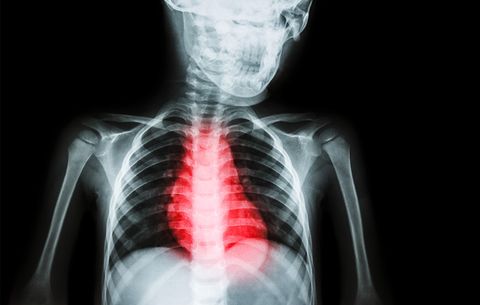
Getty Images
Yes, your ticker can be affected by how late you stay up playing video games. One of the health risks of sleep deficiency is hypertension, aka high blood pressure, Hollingsworth says.“Sleep deprivation can also contribute to an increased risk of other heart related illness, such as heart attacks and irregular heartbeats,” Hollingsworth says. In fact, recent research from the European Society of Cardiology indicated that middle-aged men who sleep five hours or less per night have twice the risk of a “major cardiovascular event” during the next 20 years than those who get seven to eight hours of shut eye.

Getty Imagesdolgachov
You already know that lack of slumber can affect other hormones, but it can have an impact on your testosterone levels, too, says Robert Zembroski, D.C., D.A.C.N.B., M.S., author of REBUILD. In one small study, participants who slept five hours per night for a week had reduced serum testosterone levels, which “can cause reduced libido,” Zembroski says. Additionally, another study indicated sleep deprivation caused a lower sperm count and affected sperm motility, so not getting enough shuteye can even harm your overall fertility.

Getty Images
It’s not just your imagination: you are actually slower to react when you’re tired. “Sleep deprivation can cause a sense of disorientation where we can lose track of time, and confusion where we can’t tell where we are,” Zembroski says. “Perhaps more serious, sleep loss can also decrease reaction time.” In fact, a 2017 study on the effect of sleep loss on young drivers said that sleepiness is a “primary cause of road crashes, underlying an average of 20% of all crashes in developed countries.”
Source: Read Full Article


